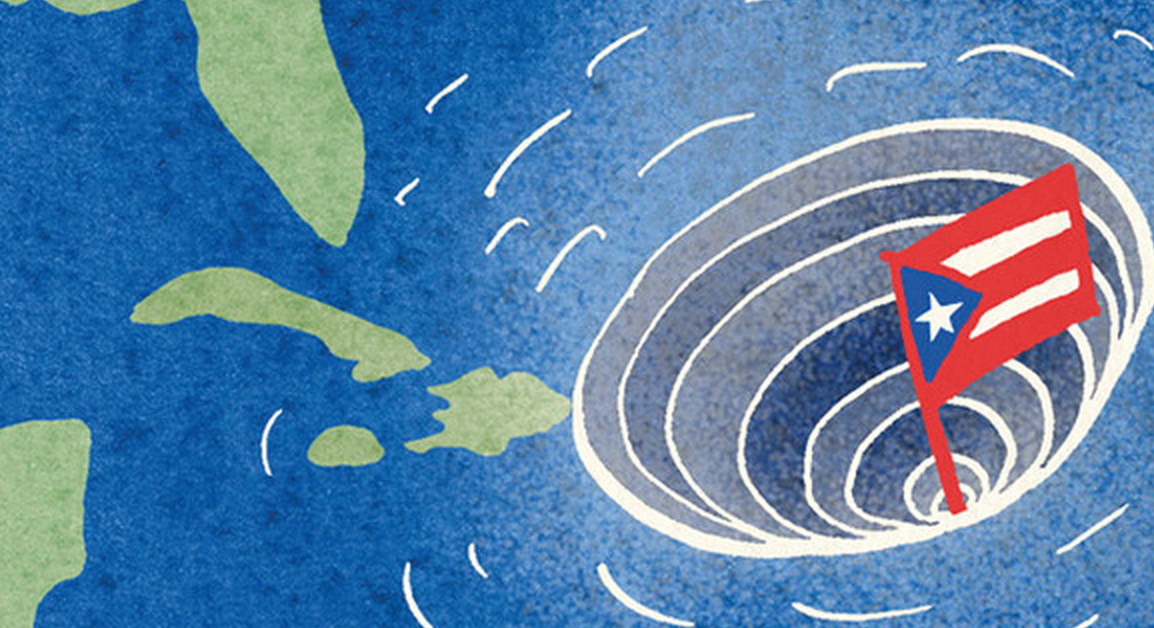The Black Sheep of America’s Family
by Anton Moggré
WHILE Europe’s news outlets mainly talk about the never-ending fi nancial crisis of Greece, in the United States a similar situation has arisen. The country in question here: Puerto Rico. The tropical island, located in the Caribbean and a commonwealth of the United States, is currently experiencing harsh economic times. Basically, it is bankrupt: a $28 billion deficit is crippling the state apart for at least the next five years, taking into account the island already has over $72 billion debt. The situation has severed to such an extent that the government defaulted on a bond payment, which is the first time ever since the island became part of US jurisdiction 117 years ago.
Whereas the general economic situ-ation of the United States seems to have recovered Puerto Rico is the big excep-tion of the country, facing structural economic, legal and social challenges. Strikingly, the problem already exist-ed for years, but only since this year, when governor Alejandro García Padil-la announced the inability to pay off the debts, the affair received news atten-tion, particularly in national media.
Ever since the Americans invaded Puerto Rico in 1898, the island has enjoyed an ambiguous legal status within American jurisdiction. Notably finan-cial incentives, provided from Wash-ington, enabled Puerto Rico to sustain a ‘healthy’ economic status. However, Congress decided to put a halt on these inducements in 1996, which – after its closure in 2006 – caused a serious re-cession in the US commonwealth.
The island struggled with its finan-cial position since that moment and has not yet found a sustainable way to get out of their desperate situation. The results are clearly tangible in soci-ety. Unemployment rates are above 14 percent, almost half of the population lives in poverty, and countless people have migrated to continental US, which is easy since they are considered to be American citizens.
Currently, debt is nearly as big as 70% of Puerto Rico’s gross domestic product (GDP), and the complex ju-dicial position of Puerto Rico within America’s jurisdiction makes it almost impossible to leave this downward spiral. To summarize what happened: American investors decided to invest largely in Puerto Rican bonds, particularly during the economic crisis of 2008. The reason why is simple: Puerto Rico as a State, including its public services, is prohibited to default from its debt, no matter how critical the situation is. Consequently, the island must always provide the creditors their mon-ey, despite the economic circumstanc-es.
Additionally, most Puerto Rican bondholders are actually of American origin, for example hedge funds. Simply put: both the debt as well as the credit is in possession of Americans, but the crisis takes place on Puerto Rican soil. This again leads to obliging the commonwealth’s government to enforce harsh austerity measures. The country is legally obliged to pay back its debts before any other financial measures. No investments can be made.
This has a direct effect on the econ-omy, which triggers the flow of immi-gration even further. Social instability is the result, which makes the overall living conditions only more precarious. The governor described the situation as “an economic death spiral”.
So what can be done to solve this dramatic, but barely known, economic crisis? Some people suggest amending the constitution, so the government is not obliged anymore to pay back their debts in all times, as all municipalities in the US already do. Another solution would be to include Puerto Rico in the federal Bankruptcy Code. Others even go further and question the overall po-sition of Puerto Rico in America’s State structure. Why not make it the 51st State? Or why not increase the indepen-dence of Puerto Rico, hence increasing its statehood? Either way, one thing is evident and that is that quick, structural, action is immediately needed. Oth-erwise this paradise island has little in common with the paradise it is meant to be.
Anton Moggré, Class of 2015, is a Law and Politics major from Utrecht, the Netherlands.

